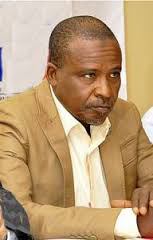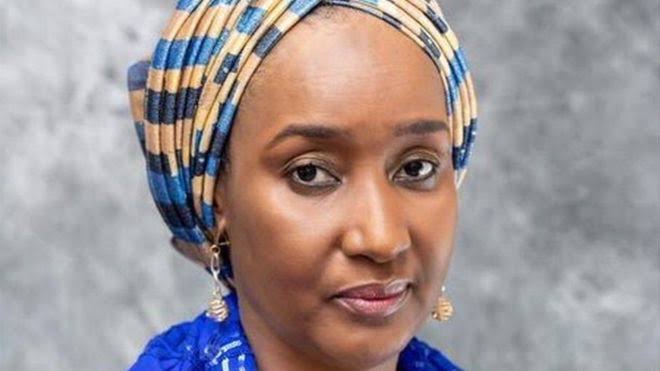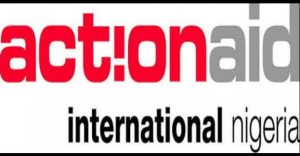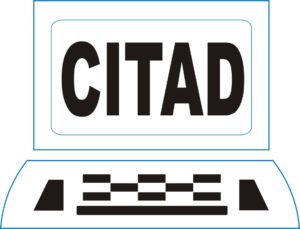Says Labour has suddenly gone off the radar
THE Executive Director of Centre for Information Technology and Development (CITAD), Mallam Yunusa Zakari Ya’u, has lashed out at the federal government for what he described as unparalleled level of incompetence in confronting the challenges of COVID 19.
Mallam YZ, as he is popularly known, made the observation in a comment he posted on his Facebook wall on Thursday, where he equally excoriated organised labour, CSOs and organised private sector for their incoherent and collective inactivity.
CITAD, a non-profit and governmental organisation with headquarters in Kano, has been in the forefront of the fight against the coronavirus pandemic in collaboration with ActionAid International-Nigeria under a joint project, Local Right Program. Through the program, the two NGOs collaborate to conduct, among other activities, surveys and public education campaigns about covid-19 in communities around the Federal Capital Territory.
Mallam YZ said: “There is no point beating a dead horse in this matter. This government has shown an unparalleled level of incompetence in confronting the challenges of COVID 19.
“It has adequate window of grace to do its preparation. Since late January, it could have built and equipped testing, isolation and quarantine centres at all the major international gateways of the country and implement a compulsory quarantine for all coming into the country, the way a number of countries did. It did not and instead, it is responding in an ad hoc manner after the chickens have gone home to roost.
“It could have used the grace period to design and even test-run a palliative system, mobilising ideas in an inclusive way. It did not and instead in the late hour got a few political appointees and bureaucrats to do what they have no idea about.
“How can it be that in an all-important battle to save lives, government will opt for a non-inclusive body to handle this task? The same government that is calling on all (private sector, development partners, individuals) to make contribution but doesn’t want any of these to be part of the management of the resources or even harvest ideas from these on how to use the resources,) Mallam YZ commented.
Mallam YZ further noted that it is sad that the federal government has, in the face of the dangers that COVID 19 presents, rather reduced the fight into “a debate that is cast as a binary option between lockdown and hunger.â€
He said against the background of the ample time it had after being forewarned of the outbreak of the pandemic, the federal government ought to “have carried out a massive sensitization campaign to prepare people both psychologically and in terms of understanding that we all have a role to play in curbing the spread of the virus.â€
According to him, it is this missed opportunity that has led to the current expression from every part of the country that “it is better to die outside in the hospital than to die in groaning at home to the fangs of hunger.â€
A Self-serving Presidential Task Force
Mallam YZ described the Presidential Task Force on Covid-19 as self-serving committee concerned only with huge allowances being paid to members on a daily basis.
“The Presidential Taskforce is all but a self-serving committee only interested in the daily sitting allowance they get (reported to be N500,000 per day: give a local community organization in Zuba this amount to mount a community sensitization campaign, it could succeed in getting everyone to be at home, palliative or not),†YZ stated adding that the task force’s messages have fallen flat and are unbelievable because it has not worked to earn public trust and confidence.
“Take as simple as providing electricity free for the citizens under lockdown. The government cannot…reach agreement with the DISCOS. The Presidential Committee does not understand the importance of electricity in the lockdown period. It is not for citizens to have cold water and keep perishable things (which is also important) but that in the lockdown, electricity and data are what people need to stay connected and informed.
Consequences
“What do we see? It is a horrible celebration of anarchy as we gleefully report of armed youth committing arson or robbery staking neighborhood and we say it is paying the government right. The problem is that it is not the government that is paying for the consequences.
“It is our own people as double victims; first of arson and robbery and then second at the hand of COVID 19 when being out and exposed heighten the possibility of contracting the virus. We amplify the messages of anarchy in the mistaken belief that this will force the government to act. The truth is that no anarchy has ever solved any social problem. They cannot accelerate history as in the dawn of the social revolution. They can only disorganize and defocus the revolutionary forces of real social change. A mob cannot be the leadership that is missing across the breath of society in Nigeria.â€
Absence of non-state actors
Mallam YZ, in the post, was also critical of civil society organisations and the organised private sector which he said constitute the “wider breadth of leadership centres in the country†for their inability to offer alternative ideas upon realising that the “government is so bereft of ideas in designing and implementing effective palliative measures.â€
“How could it be that [we have ] a government [that] is so bereft of ideas in designing and implementing effective palliative measures but there is no forceful presentation and canvassing of an alternative beyond the clap trap of “if you do not do me palliative, I will not do you lockdown?†Mallam YZ asked, while also questioning the lack of voice from the private sector.
He called on the prophets of private sector as the engine of growth, and whose voice have suddenly gone quite to step out and show leadership if they truly want Nigerians to believe “in their worn-out message that the private sector, not the state, is the solution.â€
While posing questions on the credibility of the palliative scheme being administered by government, Mallam YZ condemned the composition of the task force managing the palliative scheme, which he described as “a few political appointees and bureaucrats†appointed “to do what they have no idea about.â€
He expressed dismay that in an all-important battle to save lives, the government had opted for a non-inclusive body to handle the tasks just as it is uncharitable for the same government which is calling on all stakeholders – private sector, development partners, individuals – to make contribution but turned around to indicate that it doesn’t need any of these stakeholders to be part of the management of the resources or their ideas on how to use the resources.
Step out, NLC
Mallam YZ was equally hard on organised labour describing it as having suddenly disappeared from the radar. While he did not mention any trade union centre in his challenge for organised labour to lead the people, it is believed that he has in mind the Nigeria Labour Congress, which had traditionally led the mass movement in Nigeria since its founding in 1978.
“Labour has suddenly disappeared from the radar, to leave medical and health workers at the frontline of the battle against COVID 19 to negotiate on their own protection and hazards at the service of the nation.†According to Mallam YZ, where government has failed, it becomes necessary for citizens to take the leadership.
“We cannot keep waiting for a government that is incapable of providing an aspiring leadership to lead the way. We must become the saviours of our communities. We have done enough of lamentation. Now is time to end that and think boldly and act swiftly.
“We must understand the key challenges which is curbing the spread of the virus while ensuring people have food to eat under lockdown and provide concrete solutions that can work whether government accepts them or not.
“Let it be known that even without lockdown, millions of Nigerians have been going to bed hungry. Perhaps this should also give us the opportunity to reflect on the type of society we want: do [we] continue to live [in] this increasing inequality, so that we can continue to produce a few Dangotes while millions sleep under the bridge or do we work towards a more just, equitable society where our focus would be to democratize resources to meet the needs of all and seek to banish hunger? Mallam YZ asked rhetorically.








 In this case, the two NGOs which said they have been working in 19 communities of the FCT under their Local Right Program showed through a survey, using public information centres they set up in the 19 communities, only two communities, Paspa in Bwari Area Council and Gaube in Kuje Area Council have received any form of support.
In this case, the two NGOs which said they have been working in 19 communities of the FCT under their Local Right Program showed through a survey, using public information centres they set up in the 19 communities, only two communities, Paspa in Bwari Area Council and Gaube in Kuje Area Council have received any form of support.




